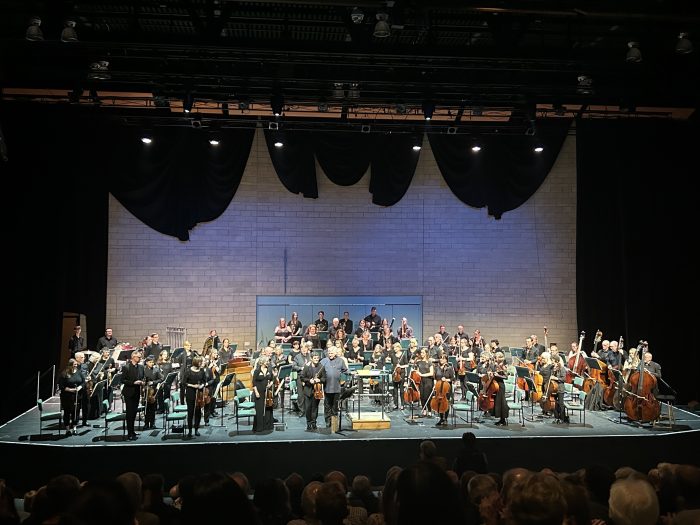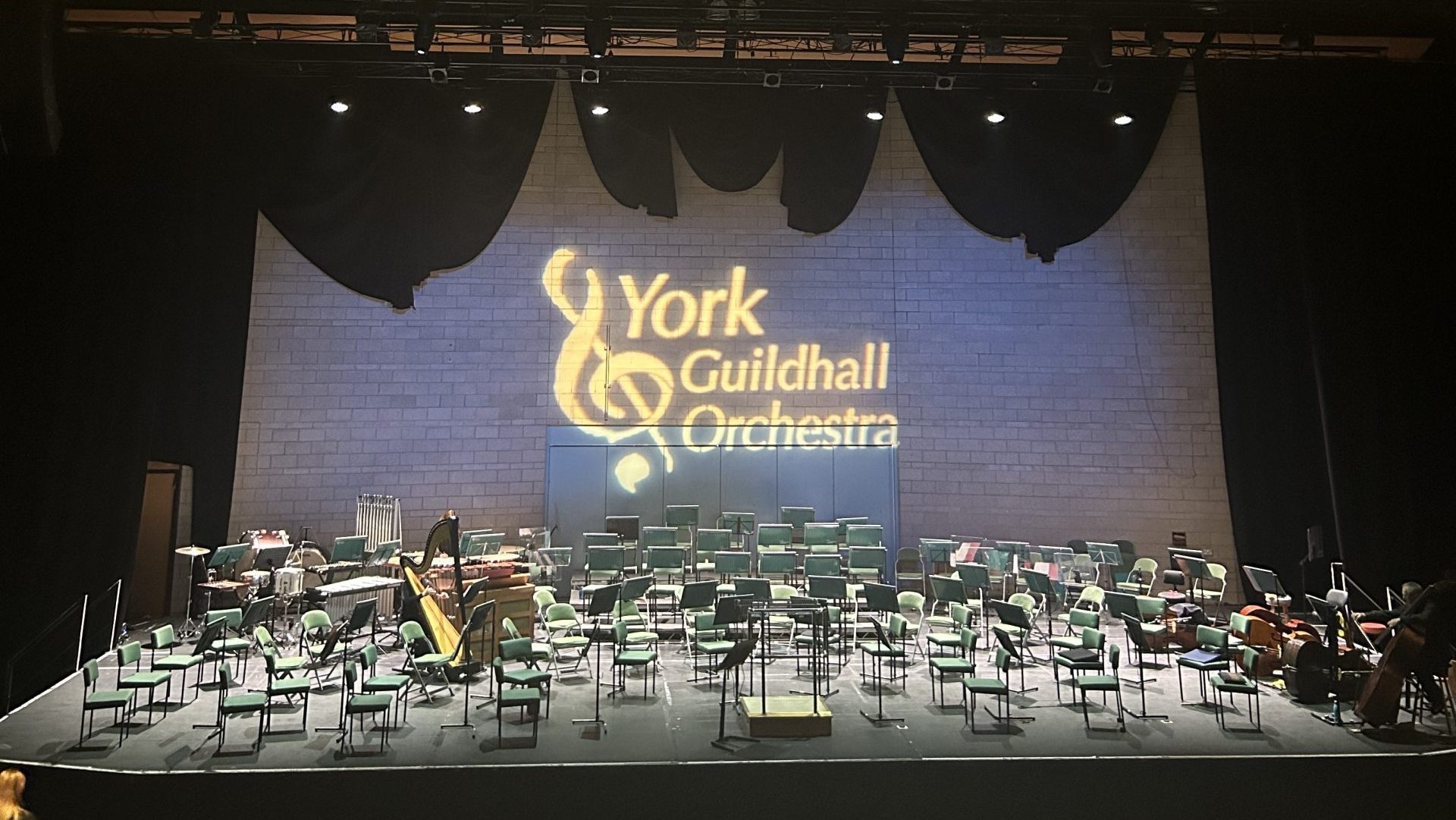York Guildhall Orchestra had a triumphant close to their 42nd season on Saturday night in a concert featuring Bernstein, Korngold and Rachmaninov under the baton of renowned conductor Simon Wright.
The orchestra, which is formed of York locals with a passion for symphonic music, has been in existence since 1980 and performs three concerts each season, with repertoire drawn from the great composers of the nineteenth and twentieth centuries. Though not a professional orchestra, the band is the official orchestra of the City of York and exhibits a very high standard of performance, as we were lucky to witness on Saturday evening.
The concert opened with Leonard Bernstein’s Overture to Candide, a dazzling and flashy start that showcased the orchestra’s technical capabilities. Though only five minutes long, it was a very impressive opening to the concert, and perfectly designed to introduce the orchestra itself as the main event before the entrance of the soloist. The filmic style of Berstein set the tone for the rest of the concert, preparing the audience for the soaring lines of Erich Wolfgang Korngold’s Violin Concerto in D Major, with violinist Nicholas Wright as the soloist.

The opening to the concerto allowed Wright to showcase his impressive control of the upper registers of his instrument, with the orchestra providing the delicate yet substantial accompaniment so key to the concerto performance. As is the case with truly great orchestral playing, the concerto was a demonstration of not just the skill of the soloist but also of the orchestra. In particular, the accompanied cadenza at the end of the first movement was handled immaculately, no small feat for a full-size symphony orchestra. The second movement, with its soaring phrases and delicate solo line, came across beautifully; the orchestra gave the soloist room to operate within the dynamic without making the music sound thin. Throughout the concert, it became clear that this orchestra’s real strength lies in their interpretation of texture; the music remained perfectly balanced regardless of the dynamic and every individual line was heard but without the music becoming overpoweringly dense. It was obvious to the listener that this is an orchestra that works very closely as a whole, and the effect in performance is stunning.
The final movement provided an opportunity for the soloist to demonstrate virtuosic control of the instrument and for the orchestra to showcase an admirably sensitive standard of accompaniment. The final flourish of bows across the string section felt truly triumphant, in keeping with the dramatic, filmic finale of the music.
We were treated to an encore from both soloist and orchestra, who performed John Williams’ Remembrance Theme from Schindler’s List to close the first half of the concert. The collective noise of appreciation from across the auditorium when the piece was announced was an excellent indication of an audience who were thoroughly enjoying the standard and style of music on display.
After a brief interval, the orchestra reconvened to perform Rachmaninov’s Symphony No.2 in E Minor. This is one of the composer’s best-known works and also the most challenging, and the orchestra handled it with admirable dexterity. Again, their skilled appreciation of texture came into its own in the piece’s romantic ebbs and flows. Performed uncut, the symphony is around an hour in duration but the orchestra demonstrated no signs of fatigue and maintained their impressive standard of performance throughout. It was also particularly gratifying to see that Nicholas Wright had joined the first violin section; it really demonstrated the orchestra’s community-based approach to music.
Overall, this was a wonderful night of music, made even more special through the knowledge that these musicians were not professionals, but people whose passion for music led them to contribute their free time to crafting such a high standard of orchestral performance. We were also delighted to observe several York students in the orchestra, getting involved in the city’s music scene and also demonstrating that classical music is for anyone who enjoys it.
